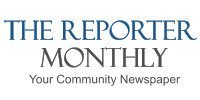
The Church has historically taken the position that marriage is between a man and a woman. Moreover, a marriage between a man and another man, or a woman with another woman is intrinsically disordered. Therefore, marriage can only be between a man and a woman in an undissolvable bond that is open to the procreation of children. In the 21st century the Church’s posture against homosexuality is seen as an anachronistic vestige of the past; when Europeans were in denial of their natural predilection and tendencies. In the late 20th century across Europe a phenomenon called “outing“ began. That is, individuals once considered monogamous professed publicly their homosexual orientations. In the secular realm, this phenomenon was accepted and virtually every European nation along with the United States initiated campaigns to legitimize and legalize same-sex marriage. By 2015 in the United States, same-sex marriages were legal. The church has been under extreme pressure from powerful international lobby groups to change its posture against homosexuality. Several religious denominations were forced to mitigate their anti-homosexual rhetoric. The Anglican, Lutheran, Methodist, and Baptist denominations were all challenged by their congregants and forced to capitulate to homosexuality. The reform and conservative Jewish congregations have likewise, become more tolerant and accepting of their homosexual proclivities. The Church has historically been adamant in maintaining its position that marriage is between one man and one woman.
On December 18th, just before the Christmas celebration this year, the Church promulgated a document entitled, Fiducia Supplicans, which authorizes the blessings of same-sex individuals but not as a couple. This document has been called heretical and scandalous by a significant number of Catholic Bishops across the world. This idea seems, from my perspective to be duplicitous. On one hand, the Church has taught that homosexuality is a sin and that the wages of sin are death. However, the Fiducia Supplicans document permits the blessings of same-sex unions. The official statement promulgated in the Fiducia Supplicans document has created a schism within the church, particularly on the African continent, where homosexuality is seen as inherently sinful and disordered. The Church’s history, when considered from an enlightened African perspective, seems to have a strategic initiative; the subliminal infusion of European ethics and morality into the African consciousness and value system. This document is merely a new phase of that strategic initiative. Christian theology impugned African culture as pagan and demonic. Africans were required to abandon their cultural practices of ancestral invocation, oblations, and extended family. Notwithstanding that the spiritual patriarchs, Abraham, Issac, and Jacob, were all polygamists; New Testament theology eschewed polygamy as paganistic and advanced monogamy as divine. After 400 years of European theology, the African continent is being asked by the Pope, in the Fiducia Supplicans document to bless, homosexual unions which is a tertiary legitimization of homosexual practices. After four centuries of New Testament propaganda, the Pope is now, in effect asking the African Bishops to abandon the New Testament scriptures of monogamy in preference for the Eurocentric cultural value of homosexuality. This document has created a conundrum for the faithful Catholics at home and abroad. The African spiritual vanguard can see the handwriting on the wall and is vehemently opposed to in any way validating homosexuality by blessing homosexual couples. Rather, African legislators have introduced laws that criminalize homosexuality. The European family, conversely has devolved to include same-sex unions as well as a tacit embrace of bestiality; the African society is expected to follow suit. Africans are confronted with a moral dilemma, its opposition against homosexuality calls into question their Fidelity to the Pope, as the vicar of Christ. This document amplifies and underscores the fundamental philosophical and spiritual differences between the African and European psyche: an irreconcilable difference.
The African church’s leadership asks, how can two individuals in a homosexual union be blessed without likewise, blessing their unholy actions. This seems incongruous when the individuals have not expressed any contrition or regret for habitual sin. The wages of sin are death and not blessings. I have listened attentively to church leadership on both continents explaining the Fiducia Supplican document. Several have concluded that this document, in effect changes nothing; while others, more uncertain and perplexed ask, “How “ can we bless the individuals without blessing their sin”?
This is dichotomous, and the dichotomy is artificial because the sin and the sinner are one. African Bishops and clergy in, Cameroon, Malawi, South Africa, Zimbabwe, Zambia, Nigeria, Kenya, and Uganda have all rejected the mandate and spirit of this document.
The Bishop Martin Anwei Mtumbukai of Malawi has gained international renown for his eloquent rejection of this document. He asks, is this document conceived and written to placate a specific population? Continuing in his eloquent homily, he repeatedly asked how could such a document have been conceived by the church; especially if it’s led by the Holy Spirit who has taught Church Fathers historically that homosexuality is an abomination.
His conclusion was three-fold, “this document looks like a heresy, it reads like a heresy, and it affects heresy”. The document asked the priesthood to bless two people in a same-sex relationship as individuals, but not as a couple. The Bishop argues that this statement is ambiguous or equivocal at best, because the two people are in fact, a couple; they sleep as a couple, live as a couple, and see themselves as a couple. The Church leaders in Nigeria, Kenya, and Uganda have assumed similar postures by rejecting the Pope’s mandate to bless homosexual couples because it’s a violation of the word of God.
The lines of demarcation are clearly drawn, and once again Africa is at odds with Europe; so where do we go from here?
This is another salient sign that the days of slavery are over; although the church is shrouded in a veneer of holiness, it is increasingly clear that it is not holy and that the Pope is Not the vicar of Christ. Such an egregious document is again an overt example of infidelity to the teachings of Christ.
This document must be the last episode in the insidious plan to validate homosexuality in Africa.
In my view, this document serves as the axe that will sever the artificial spiritual ties between the Roman church and Africa. The African is the Father of humanity, and yet, 236 Million Catholic Africans have been taught to call the Pope, “ The Holy Father”. It is this same holy father that is now asking his African Holy men to bless an abominable act. Is it time for the African Church to become autonomous? Is it time for the Father of humanity, who is by nature spiritual, to assume, at last, the leadership role of his own people? Or should the status quo continue with the white holy father’s sinful dictates, that are intended to validate unnatural behaviors? There is a growing sentiment among the intellectual Vanguard of Africa, that this is the straw that will break the camel’s back. This is, therefore, a historical moment when the universal fulcrum will pivot the African in a direction that is consistent with his own morals, values, and unique cultural proclivities. There must be respect for the different values of others, without having to compromise one sense of morality and belief, in the word of God. A new dispensation is here, and the cry for African spiritual autonomy is resounding; it will become ubiquitous. African liberation theology must denigrate same-sex marriage for its people as a sin, and violation of the word of God. Is Africa mature enough; it is certainly old enough to develop a theology that is consistent with the African consciousness and theistic morality under the influence of the Torah, prophets, and Psalms of King David.
The Fiducia Supplican Church document serves to demonstrate the relativity of morality. Apparently, morality is a subjective expression of the biological and/or physiological predilections of a people, they are not universal. Therefore, the different ethnic groups cannot be expected to exhibit the same behaviors, or share the same values; the reality of nature is duality. This statement in no way means that one group is right, and the other is wrong. Rather, it means that if the nature of reality is duality, then there is no monolithic morality.
Dr. Yisrael teaches an introduction to the Hebrew alphabet; interested parties contact: Babayshua@gmail.com.


